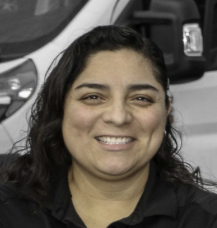What Is Biohazard Cleanup? Why You Should Always Hire a Professional
When most people think of hazardous materials, they imagine chemical spills or toxic waste. But biohazards—biological substances that pose a threat to human health—are far more common than you’d expect. These include blood, bodily fluids, animal waste, mold, and even certain viruses or bacteria. Handling them isn’t just unpleasant—it can be extremely dangerous.
That’s where companies like 360 Hazardous Cleanup come in. As trained experts in the field, we’re often asked: What exactly is biohazard cleanup? And why can’t I do it myself? In this post, we’ll break it down.
What Is a Biohazard?
Before diving into cleanup, it’s important to understand what qualifies as a biohazard. The CDC defines biohazards as biological substances that pose a risk to human health or the environment. These substances can be found in a variety of settings:
Crime scenes
Trauma incidents
Hoarding situations
Sewage backups
Animal infestations
Infectious disease sites
Unattended deaths
Biohazards contain pathogens—bacteria, viruses, or other microorganisms—that can cause disease. Even brief exposure can be harmful without proper protection.
What Is Biohazard Cleanup?
Biohazard cleanup refers to the safe removal, cleaning, and disinfection of areas contaminated with biohazardous materials. It’s a highly specialized process that goes beyond typical cleaning. The goal is not just to make an area look clean—but to make it safe.
The cleanup process typically involves:
1. Assessment and Containment
Trained professionals assess the area and establish a containment zone to prevent cross-contamination. This is especially important in places like homes, schools, or businesses.
2. Removal of Contaminants
All visible and non-visible biohazards are carefully removed. This may include blood-soaked materials, bodily fluids, needles, feces, or other waste. These materials are bagged and disposed of according to strict OSHA and EPA regulations.
3. Disinfection and Deodorization
The area is thoroughly disinfected using medical-grade cleaning agents designed to eliminate harmful pathogens. Specialized equipment—like foggers or ozone machines—may be used to neutralize lingering bacteria or odors.
4. Restoration and Clearance
Finally, the space is restored to its original condition. This could include removing and replacing flooring, drywall, or insulation. Some companies, like 360 Hazardous Cleanup, offer full remediation and restoration services, ensuring your property is returned to a livable, safe condition.
Why Biohazard Cleanup Isn’t a DIY Job
It can be tempting to handle minor incidents yourself, especially if you’re trying to save money. But biohazard cleanup is never something you should take lightly. Here’s why:
1. Health Risks
Biohazard scenes are rife with pathogens that can lead to serious illness or infection. HIV, Hepatitis B and C, MRSA, and many other diseases can be transmitted through contact with contaminated materials. Without the proper PPE (personal protective equipment) and protocols, you’re putting yourself and others at serious risk.
2. Legal and Regulatory Compliance
Biohazard cleanup is governed by local, state, and federal laws. Improper disposal of contaminated materials can result in hefty fines or even criminal charges. Professionals ensure that every step—from handling to disposal—is compliant with OSHA, EPA, and DOT regulations.
3. Thoroughness and Experience
No matter how well you think you’ve cleaned an area, harmful pathogens can linger on surfaces or in the air. Professionals use specialized tools and industry-specific training to detect and eliminate contaminants completely. At 360 Hazardous Cleanup, our technicians are trained to handle everything from minor incidents to large-scale environmental decontamination.
4. Emotional Toll
In many cases, biohazard cleanup follows traumatic events like deaths, suicides, or accidents. For loved ones or property owners, attempting to clean up a scene can be emotionally overwhelming. Hiring a professional not only ensures thorough cleaning but also allows those affected to begin the healing process without further trauma.
Situations That Require Biohazard Cleanup
Here are some of the most common scenarios where biohazard cleanup is necessary:
Crime Scenes: Blood, tissue, and fingerprint dust need to be properly handled after a violent crime.
Unattended Deaths: When someone passes away and is not discovered for days or weeks, decomposition can create dangerous conditions.
Suicide Cleanup: Requires careful, compassionate handling due to the emotional weight and biohazard risk.
Hoarding Cleanup: Often involves mold, bacteria, pest infestations, and human waste.
Sewage Backups: Raw sewage is loaded with harmful bacteria and viruses that can make people extremely ill.
Mold Remediation: Mold spores can cause respiratory issues, especially in immunocompromised individuals.
Infectious Disease Cleanup: COVID-19, MRSA, and other pathogens require specialized sanitation procedures.
Why Choose 360 Hazardous Cleanup?
At 360 Hazardous Cleanup, we understand that no two situations are the same. Our licensed and certified team is trained in the latest techniques and uses state-of-the-art equipment to provide fast, thorough, and compassionate cleanup services.
Here’s what sets us apart:
24/7 Emergency Response: Disasters don’t wait for business hours—and neither do we.
Discreet Service: We arrive in unmarked vehicles to protect your privacy.
Compassionate Approach: We handle every case with care, dignity, and respect for those affected.
Full-Service Restoration: We don’t just clean—we restore your space to its pre-incident condition.
Compliance and Certification: We’re fully compliant with OSHA, EPA, and local health regulations.
Final Thoughts
Biohazard cleanup is not just about cleanliness—it’s about safety, health, and peace of mind. Whether you’re dealing with a trauma scene, unattended death, or severe contamination, hiring a professional is always the safest choice.
At 360 Hazardous Cleanup, we’re here to support you through some of life’s most difficult moments. Our mission is simple: to make your environment safe again, with professionalism and compassion every step of the way.

